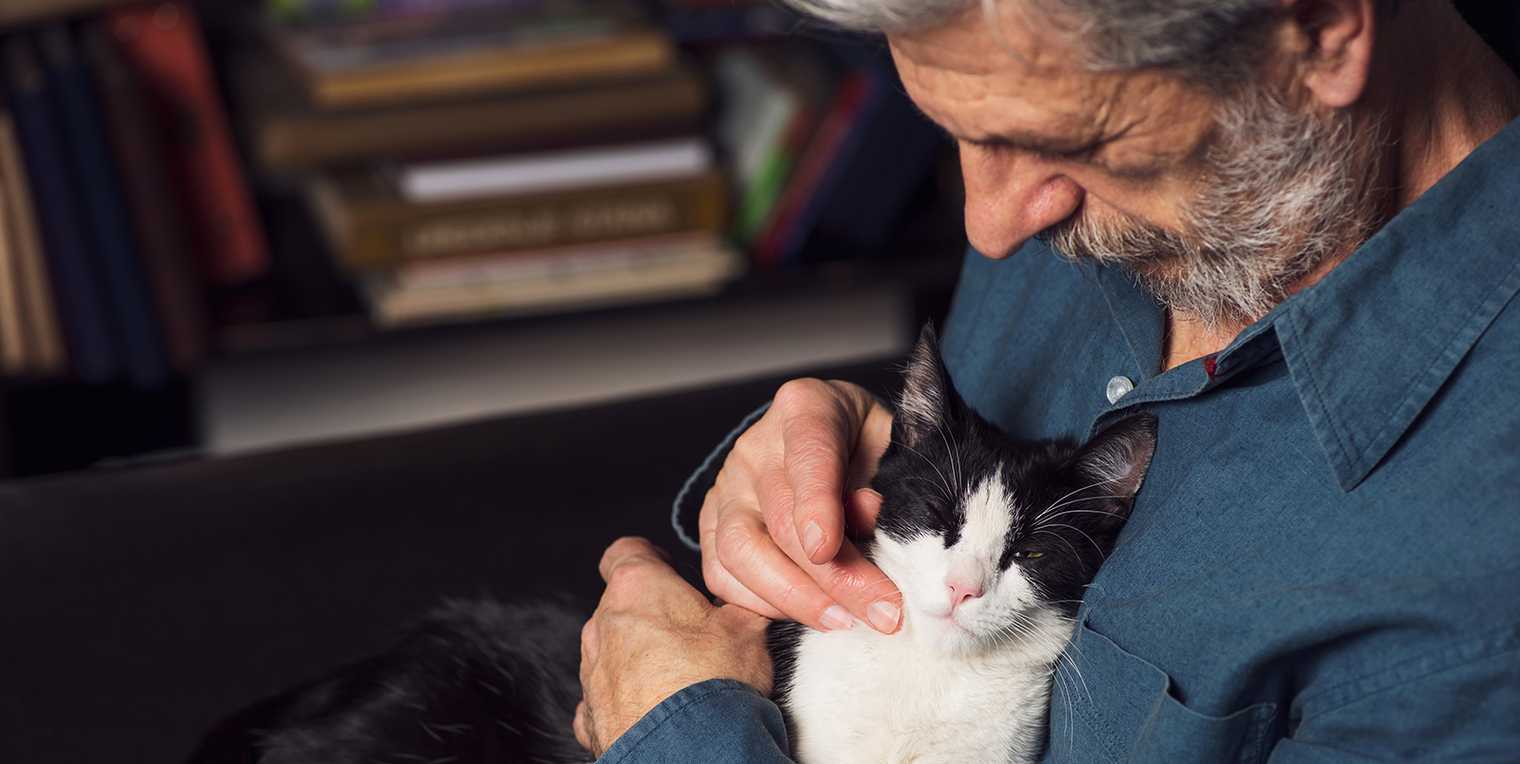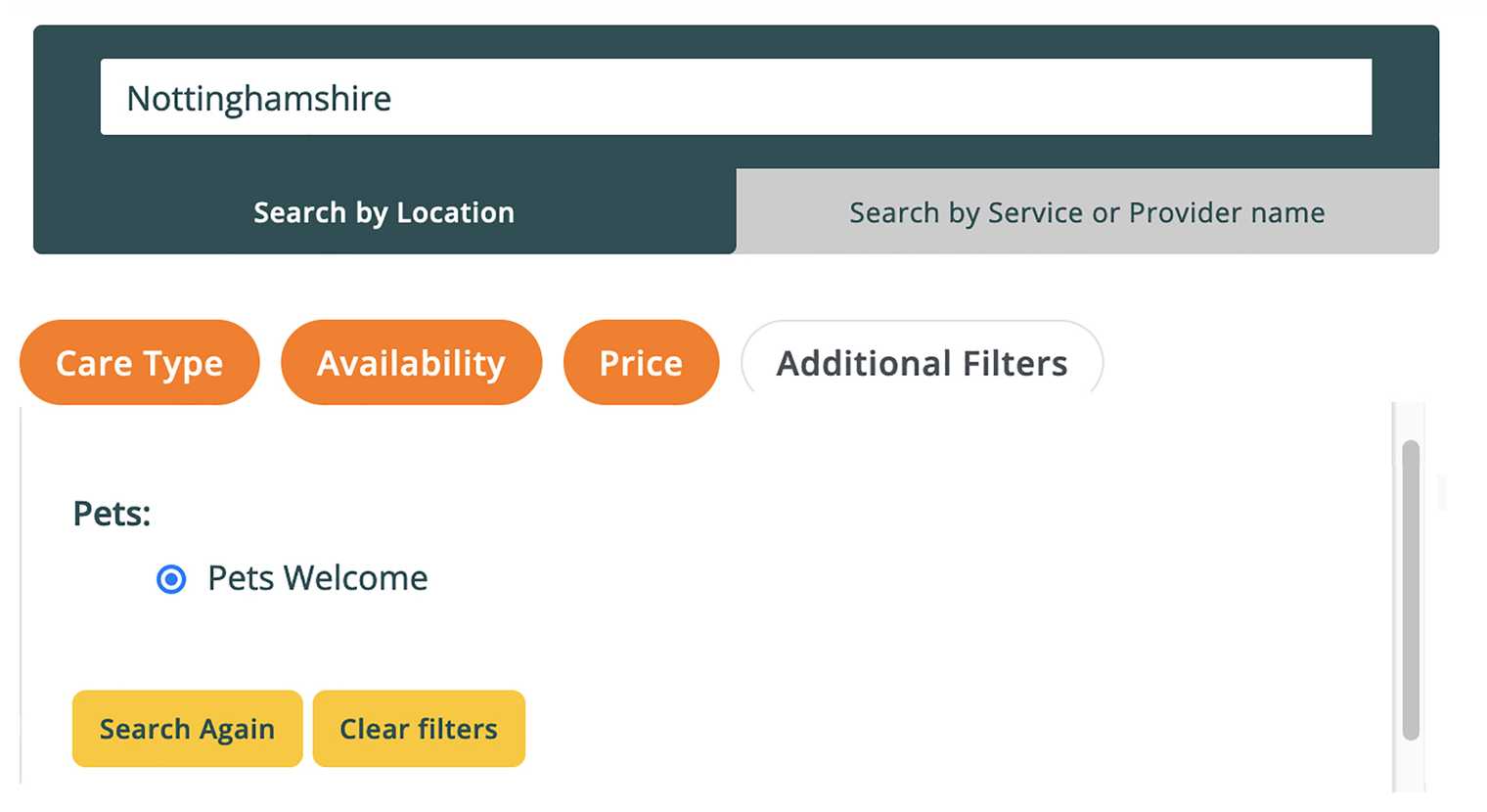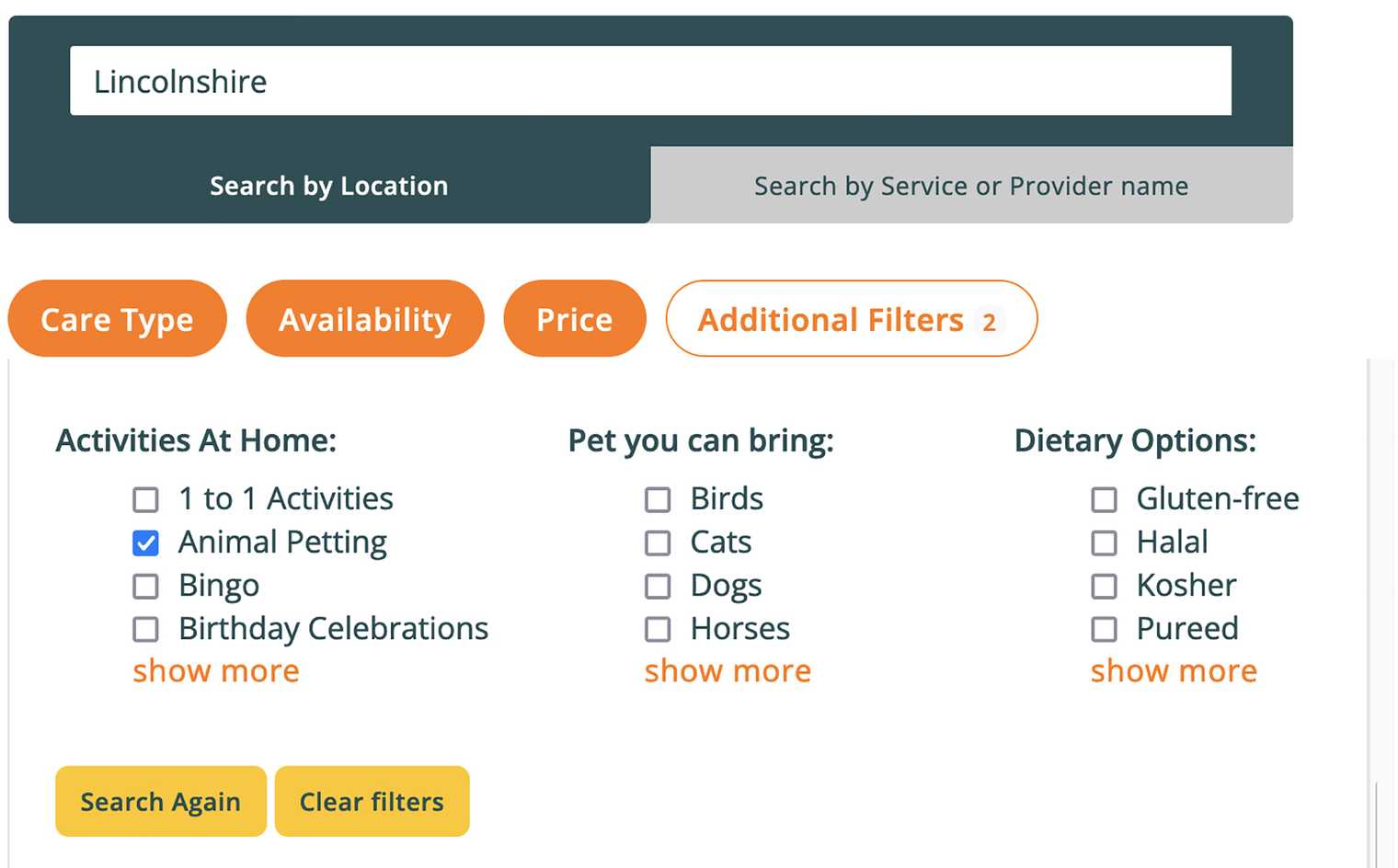Posted by Hannah Rowe
Pets and the Benefits of Pet Therapy for Care Home Residents
For most people, having a pet is a source of joy and comfort. So, it is natural for them to be concerned that they may have to give up their companion(s) should they need to go into a care or nursing home.
Not only is this not always the case – and you can find care homes that accept pets by using the additional filters button on Autumna - but even if it is, many care homes arrange for pet therapy animals to visit their residents. Therefore, some interaction with animals can remain for many years.

What is pet therapy in a care home?
Pet therapy involves the use of trained animals to perform a companionship role. This is often in a care home but is also used in other facilities such as hospitals, hospices, schools, and prisons – anywhere that a group of people are located, who may benefit from interaction with animals.
The animals can help support residents’ emotional, social and cognitive needs, and can also act as a reminiscence discussion topic.
What are the main benefits of pet therapy for care home residents?
Building pet therapy sessions into a care homes’ activities programme brings many benefits:
Better mental wellbeing
The act of holding or stroking an animal such as a cat, dog or rabbit releases the so-called ‘happy hormones’ of serotonin, prolactin and oxytocin which help people to relax and therefore reduces anxiety. Studies have also suggested that residents with dementia can be soothed when introduced to pets in care homes, reducing the negative behaviours associated with agitation.
Better physical wellbeing
Helping to groom an animal’s fur or throwing a ball for a dog are ways for residents to be active during a Pet Therapy session. Studies have even shown that it can reduce the effects of some health conditions, for example lowering blood pressure in patients with heart conditions.
Encourages reminiscence
Bringing animals into a care home can prompt memories and discussions amongst residents of their own previous pets.
Reduces loneliness and increases social interaction
Many people choose to have a pet (or pets) as a companion, which also gives them a reason to leave the house to walk the dog or buy food for them. These actions will increase social encounters, either on the walk itself or at the pet shop. Pets within care homes, either as visitors or regular occupants, perform a similar role. They not only provide companionship but are also a talking point – how many dog owners engage in conversations with strangers because of their pet?!
Does pet therapy in care homes just involve dogs and cats?
Although common household pets such as dogs and cats are regular visitors to care homes, many other animals are used for the same purpose – horses, donkeys and alpacas for example. Some animals are less cuddly – like snakes and lizards and birds of prey - but certainly provide interest and a talking point!
Dogs are the most popular choice, and they may not even be trained therapy dogs! Some homes allow residents’ families to bring a well-behaved dog or two to visit, which may even have belonged to the resident before they came into care. Off-duty staff also regularly bring their dogs into the home.
If the dogs belonged to the resident or belongs to their family, it provides an extra dimension to the visit and also makes the resident the centre of attention. If the dog belongs to a staff member, it allows the residents to meet an animal which the staff member has no doubt talked about, and therefore creates a closer relationship between the residents and the staff member.
Cats are less common (mainly as they are more difficult to train!) but can be a wonderful experience for residents if they are happy to be ‘lap cats’.
Birds – these can range from a budgerigar in a cage to a bird of prey! The latter are often brought into the home for an informative talk with a trained handler.
Larger animals – with an experienced handler, larger animals such as alpacas and even horses can be used as pet therapy animals. Visits from this type of animal are also often accompanied by a talk from their owner/handler.
Which organisations offer pet therapy?
Across the UK there are many organisations and charities offering pet therapy in care homes. Some of these are small, local services, but there are some larger organisations which operate on a regional or national scale, such as Pets As Therapy, a charity which covers the UK.
For people facing the prospect of no longer being able to care for their pet - possibly because they are going into a care home - The Cinnamon Trust is a charity which helps elderly and terminally ill people with the care of their pets.
What if I want to take my own pet with me into my care home?
For someone going into care, the prospect of having to say goodbye to their beloved pet and companion can be very traumatic. Many care homes though allow new residents to bring their pets with them. This can help them to settle into their new environment. Often staff will assist with the care of the pet, from collecting supplies for it to arranging visits to the vet.
You can find care homes that will accept pets, or which offer pet therapy, using the Autumna directory.
To find the care homes that will accept pets simply use the ‘Additional Filter’s button, scroll down, and select the ‘Pets Welcome’ button. Then ‘search again.’
In this example, we’re looking for pet-friendly care homes in Nottinghamshire.

Autumna also allows you to search for care homes that offer Pet Therapy (along with a whole host of other activities that you might be interested in).
Again, just use the ‘Additional Filters’ button and select ‘Animal Petting’ and/or ‘Pet Therapy’ from the ‘Activities At Home’ drop-down list.
In this example we’ve searched for care homes in Lincolnshire that offer animal petting and Pet Therapy among their regular activities.

You’ll also notice that there’s even a drop-down list highlighting what animals you can bring to your new care home.
So, if you live in Southampton for example and you find yourself thinking: “Can I bring my horse with me to my new care home?” Autumna, which has the most detailed database covering elder care providers in the UK, will help you find the answer.
Where do I start when looking for a care home?
Possibly the best place to start your search for the right care home for you or an older loved one, is by completing this simple questionnaire. It’ll lead you through all the questions you should be asking to establish what sort of care you need.
It’s important to note that Autumna’s advice is independent and impartial. Autumna accesses every one of the UK’s elder care providers and does not accept referral fees from providers to promote one over another.
Can I speak to someone to help me find a care home?
Of course, if you’d prefer a human to help guide you through the tricky process of finding the best care home for you, then just call our friendly advice line team on 01892 33 53 30. The lines are open 7 days a week (Mon – Fri 8.30am – 5.30pm, Sat 10am – 5pm, Sun 10am – 4pm) and they’ll be very happy to guide you.
Autumna provides a simple way to find pet-friendly care homes and nursing homes.
Here’s some examples…
Autumna provides a simple way to find care homes that offer Pet Therapy as an activity.
Here’s some examples…
- Care homes that offer Pet Therapy in or near Brighton
- Care homes that offer Pet Therapy in or near Liverpool
- Care homes that offer Pet Therapy in or near Leicester
- Care homes that offer Pet Therapy in or near Bristol
- Care homes that offer Pet Therapy in London
- Care homes that offer Pet Therapy in Manchester
- Care homes that offer Pet Therapy in Cambridge
Other articles to read
Autumna Blog

Older Persons Care Advice
The Effects of Music Therapy on People Living with Dementia
March 12th, 2024
How can music help people with dementia feel calmer, happier and more connected to people? Find dementia-friendly playlists here.

Older Persons Care Advice
Day Care – A first step, respite, or to have fun!
March 12th, 2024
A chance to socialise means the world to some older people. Day Care services for respite provide an opportunity to laugh, learn and listen to like-minded people. Here's how.

Older Persons Care Advice
How Much do Pensioners Need a Year to Retire?
February 8th, 2024
Women's retirement savings are on average £69,000 while men's savings equate to £205,000. Autumna looks at why women’s retirement funds are less than men's in the UK and how that affects their choice of care.






